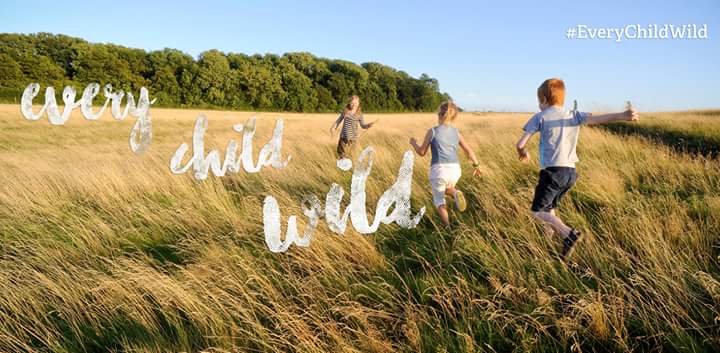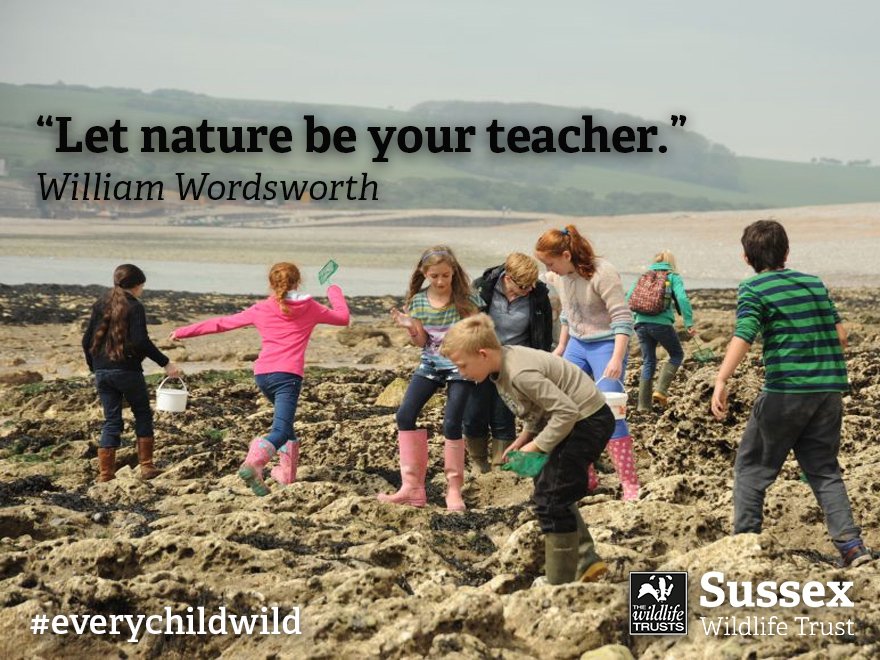
"Children are happier, healthier and more creative when they are connected with natural world. This should be an option not just for a few, but for every child in the UK."
It seems like an obvious concept but, unfortunately, it would appear that there is a severe lack of "wild play" in the lives of children nowadays. As we all know, there is a lot of focus around smart devices and many kids spend most of their time staring at a screen of time kind, both at home and at school where tablets are being introduced more and more as a learning tool. Of course, there are plenty of benefits to using these devices for learning but too much screen time is preventing children from getting fresh air, exercise and from experiencing the wildlife on their doorsteps.
The Wildlife Trusts commissioned a report this year to find out exactly where children and nature stand together and they came back with some worrying statistics. They said that 27% of 8-15 year olds had "never played outside by themselves, beyond their house or garden" and of those children, 37% had not played outside in the past 6 months. When I think back to when I was that age, I have clear memories of spending the warmer evenings playing games on the local green with the neigbouring kids, having water balloon fights and constructing unfeasibly long daisy chains. In fact, the memories that have stuck in my head are the ones I spent outside.
Naturally, parents face a number of worries over letting their children play outside, busy roads and stranger danger being two of the biggest. Green spaces are much less abundant now, with so much housing development going on, and for those children living in more urban areas, finding an outdoor place to play is even trickier. That's why a campaign like "Every Child Wild" is so vital. It's working hard to get round the challenges of modern Britain and find new and exciting ways for kids to involve themselves with wild activities.
A big part of this campaign is targeted at schools. Children generally spend five out of seven days of the week at school, so a large percentage of interaction with nature has to be undertaken there. The Wildlife Trusts are already reaching 300,000 school children each year but there are 500,000 still to be reached. In the Trusts' report, they found "only 24% of children said their school had an indoor nature display area like a nature table" and just half of children said they have a nature area outdoors. More of an emphasis needs to be put on nature at schools, so that they can develop a proper respect for the environment and discover new and exciting facts about wildlife; this is where the conservationists of tomorrow will be inspired.
The importance of encouraging children to get outside cannot be stressed enough. There are so many benefits to connecting with nature, not only for young people but for all ages; both physical and mental health can be vastly improved, as well as knowledge. The "Every Child Wild" campaign is working to inspire children, parents and teachers together through nature clubs, reserve visits and plenty of fun ideas to have a wild adventure! The image of myself and my brother running through woods filled with bluebells, dragging around huge sticks and getting covered in mud when we were little is one that I'll always have. Children of this generation need similar images of their own so that they can look back when they're older, as we do, and remember what nature meant to them.
You can follow the campaign on Twitter using the hash tag #EveryChildWild and share your own thoughts and ideas there too.


It will work if you can get the kids out there respecting nature early. This will have positive knocks on like reducing vandalism of green sites, and the scourge of fly tipping.
ReplyDelete